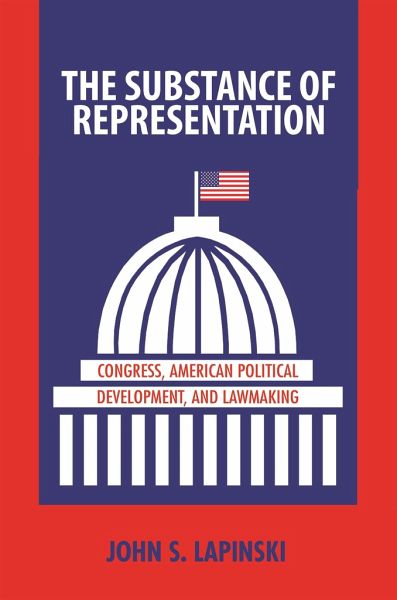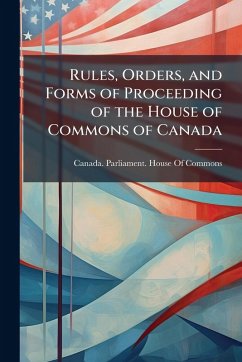
The Substance of Representation
Congress, American Political Development, and Lawmaking
Versandkostenfrei!
Versandfertig in über 4 Wochen
31,99 €
inkl. MwSt.
Weitere Ausgaben:

PAYBACK Punkte
16 °P sammeln!
"Students of Congress think they are studying what government does when they examine roll call votes. In this powerful and original contribution to legislative and policy studies and American political development, John Lapinski shows otherwise. The substance of policy--what sorts of laws members of Congress are voting on--makes an enormous difference for theory, method, American political history, and our conclusions about how Congress works."--Jacob S. Hacker, Yale University "I salute John Lapinski for this innovative work on American lawmaking. The book offers deft history, a good measure ...
"Students of Congress think they are studying what government does when they examine roll call votes. In this powerful and original contribution to legislative and policy studies and American political development, John Lapinski shows otherwise. The substance of policy--what sorts of laws members of Congress are voting on--makes an enormous difference for theory, method, American political history, and our conclusions about how Congress works."--Jacob S. Hacker, Yale University "I salute John Lapinski for this innovative work on American lawmaking. The book offers deft history, a good measure of the significance of laws, and a helpful categorization of laws by substantive area. In a welcome move, it annexes Congress to the study of American political development."--David Mayhew, author of Partisan Balance "The Substance of Representation is a provocative book. Lapinski urges scholars to incorporate the substance of policy into models of lawmaking and shows us with impressive historical sweep how this can be fruitfully done."--Sarah Binder, George Washington University "This important book will force scholars to adopt a higher standard of analysis when discussing policymaking in the American system. It challenges the power and accuracy of a widely used measure of ideological roll call voting. And by collecting, coding, and categorizing all major public laws over a vast period of history, this book provides a rich and comprehensive look at how U.S. policies have been enacted in key issue areas."--Wendy Schiller, Brown University "Making several vital contributions to the historical study of the U.S. Congress, this book develops a theoretically grounded system for coding the substance of laws and roll calls, lays out the best measure of legislative significance in the field and applies it across 120 years of American political history, and tests the sources of legislative productivity across distinct substantive policy domains."--Eric Schickler, University of California, Berkeley













